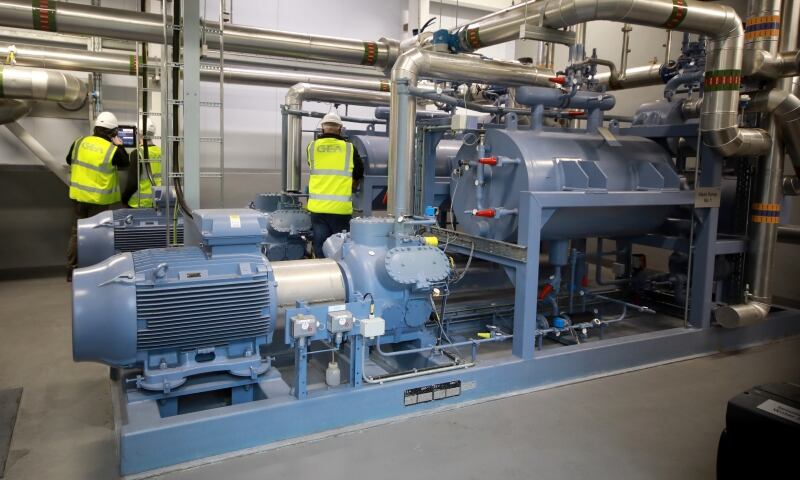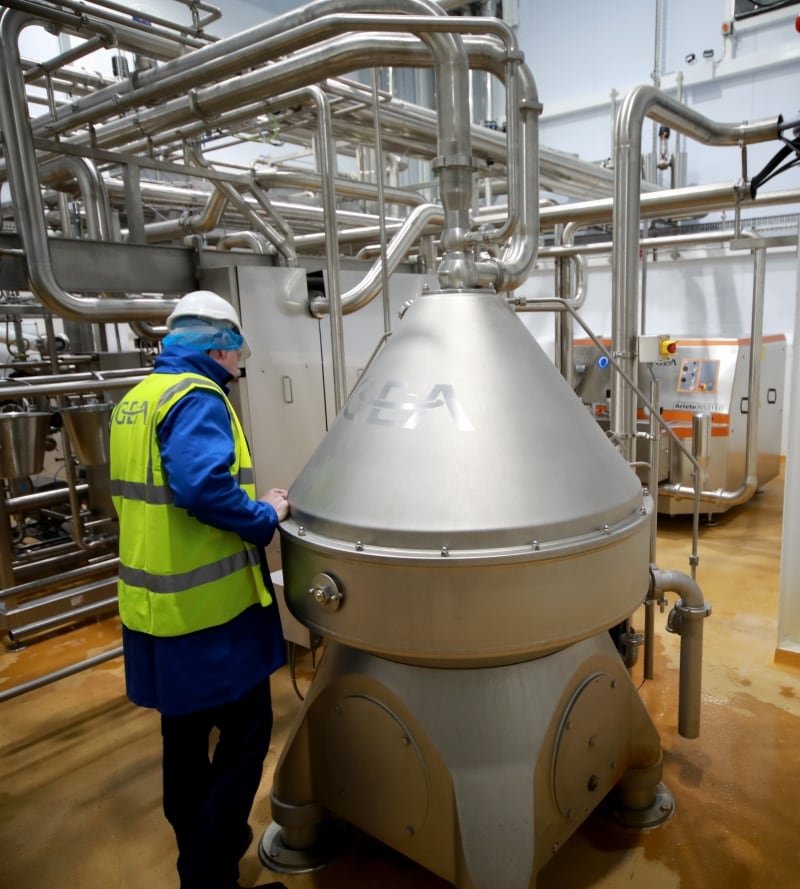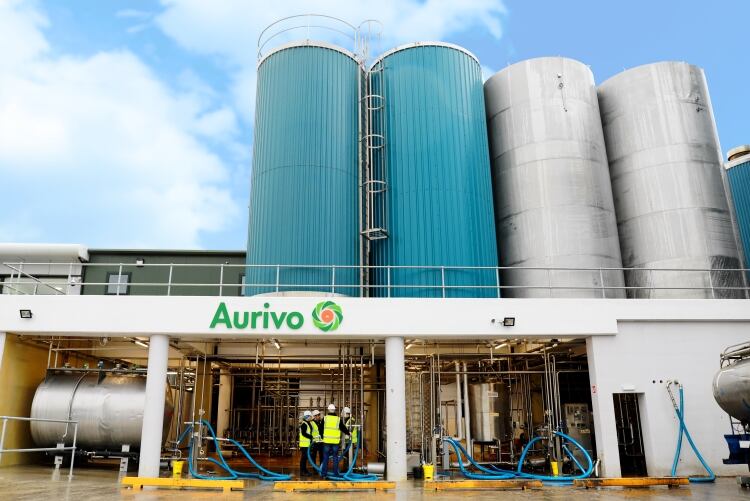The results have been achieved from a multimillion-euro upgrade that has harnessed new liquid processing systems, energy-saving and refrigeration and heat recovery solutions through heat pumps from GEA.
The Aurivo site in County Donegal annually produces and packages 120m liters of whole milk, skimmed and low-fat drinking milks, including organic milk, for a range of brands.
Milk processing companies need to stay flexible to meet their customers’ changing demands and production throughput, and are also tasked with improving environmental sustainability. To stay competitive, Aurivo was looking to increase efficiency and capacity, as well as reduce carbon footprint.
The firm already used a green supplier for its electricity, and so a key goal was to reduce overall energy use, and in particular cut reliance on fossil fuel-fed water boilers.
As a key part of its upgrade program, the firm contracted and worked with GEA’s local teams in Ireland to design, configure and install a new refrigeration plant at the Killygordon facility.

Aurivo decided on GEA heat pump technology to reclaim and channel excess heat from the new cooling plant to heat water for the milk pasteurization process. This would positively impact on energy use, and allow Aurivo to reduce fossil fuel-based heating (boiler), and also cut carbon emissions.
GEA Ireland’s dairy liquid processing specialists installed the new, larger 45,000 l/h capacity pasteurizer, together with separation, homogenization and milk standardization equipment that work with the upgraded refrigeration and heat pump solutions.
The overall upgrade has increased Aurivo’s hourly milk processing capacity and reduced energy consumption for processing, heating and chilling by about 12%. CO2 emissions have dropped by more than 181,000 kg per year. The heat pump technology has cut Aurivo’s use of fossil fuels for heating the water used for pasteurization.
“The new refrigeration and heat pump solutions provide us with 1200 kW of cooling, and roughly the same in heating capacity,” Stephen Carlin, Aurivo’s engineering manager, said.
“The GEA heat pump that collects and recycles what was waste energy from the chiller provides us with the remaining energy needed to take the water up to the pasteurization temperature of a max of 78°C.
“This has rendered our traditional fuel oil-burning boilers almost redundant for the pasteurization process. In fact, we now only have to turn the boilers on for one hour a week to kick-start each process cycle.”
There is also untapped capacity in the heat pump system, Carlin noted.
“At present we are only using 50% of the heat pump capacity. If necessary, we could double the amount of hot water produced, and so potentially double our capacity for pasteurization.”

GEA configured and installed all refrigeration, heat pump and pasteurizer systems.
“We didn’t just provide a heat pump, we optimized the pasteurizer to suit the heat pump application for the Aurivo site,” Kenneth Hoffmann, product manager heatpumps at GEA, said.
“All the way through the project we were focused on offering a complete solution, not just individual parts, so that our technologies could help to reduce waste, energy consumption and use of fossil fuels, while increasing capacity and making the Aurivo facility one of the most sustainable dairy plants in Ireland.”
The combined €2.8m ($31.m) contracts for the process, refrigeration and heat pump solutions spanned design, configuration, supply and installation of GEA customized refrigeration and heat pump system, and PTC pasteurizer skid, together with MSI 400 separator, GEA standomat MC systems, GEA Ariete homogenizer equipment, and the TP 1500 comfort controller.

